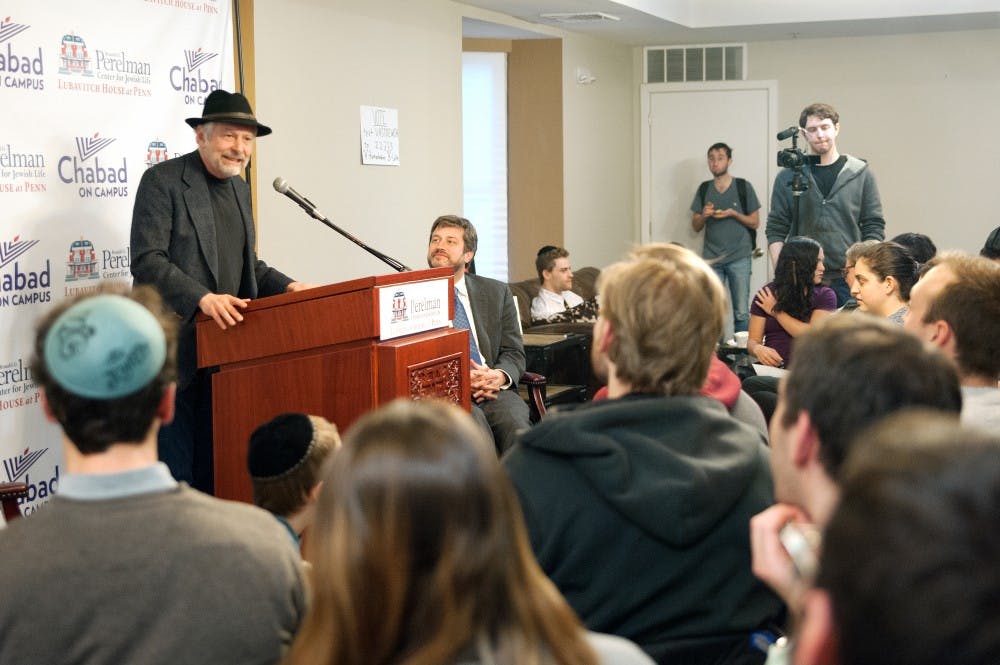
The tradition of a latke-hamantaschen debate began at the University of Chicago in 1946.
Credit: Photo from Rabbi Levi HaskelevichTwo professors met on Monday to continue a 71-year-old debate over the relative merits of the latke and the hamantaschen.
The Chabad House at Penn hosted its first latke-hamantaschen debate, where political science professor Ian Lustick and Penn Law School Dean Theodore Ruger took opposing stances. The debate fell eight days after the Jewish holiday Purim, during which hamantaschen — a triangular pastry fashioned after the three-corned hat worn by the villain in the story of Purim — is traditionally consumed.
Although the tone of the debate was lighthearted, it took a formal structure with opening and closing arguments in addition to questions from the audience.
“Doesn’t the latke prove that the war was all about the oil?” one student asked, jokingly drawing a parallel between modern conflicts and the role of oil in the story of Chanukah.
After the event, Lustick explained that the humorous tone reflects the nature of Purim.
“Every culture has a holiday in which everything turns upside-down,” he said. “Purim is that for Jews — there’s a silliness associated with it.”
The latke-hamantaschen debate has been a tradition at many universities for decades, beginning in 1946 at the University of Chicago. On Monday, attendees received samples of the potato pancake and triangular pastry upon entry and voted on their favorite food at the end of the event. During the final vote, 50 students chose latkes and 50 students chose hamantaschen.
One audience member suggested the hamantaschen is superior because it represents a time of prosperity as opposed to the latke, which he said “reminds us of a harder time.”
“Now if you ask me to say that now, in times of prosperity, we should celebrate hamantaschen, and forget the bad old days of the simple foods that our ancestors ate, you are forgetting the 99 percent of people that lived, struggling every day for their existence,” Lustick said in response.
“We are not in the time of a messiah when we can think only of peace, only of prosperity for all,” he continued. “We are trying to get there, and I argue that we get there through latkes.”
College sophomore Holden Caplan, who helped organize the debate, said that the event is intended to bring more people to the Chabad House “to celebrate Jewish tradition and culture.”
“The best way to do it is through fun, silly topics like this debate,” he said.
College and Engineering sophomore Jesse Berliner-Sachs, president of the Chabad Undergraduate Committee at Penn, said he hopes the latke-hamantaschen debate will become an annual event at Penn.
Ruger closed his argument for the hamantaschen by arguing that it is improving as Jews continue to experiment with recipes.
“Is the best latke you’ve eaten going to get any better?” he said. “I think we’ve got centuries of experience with good latkes … the brighter days for hamantaschen are ahead.”
The Daily Pennsylvanian is an independent, student-run newspaper. Please consider making a donation to support the coverage that shapes the University. Your generosity ensures a future of strong journalism at Penn.
Donate






